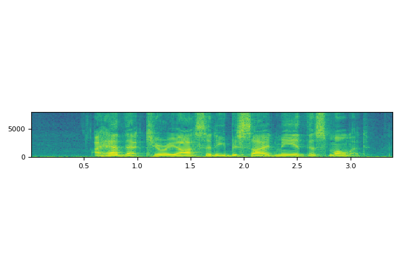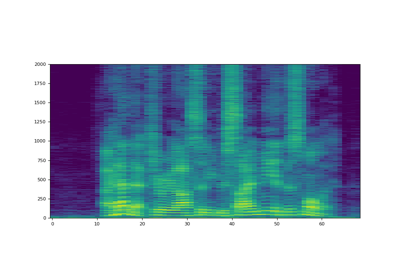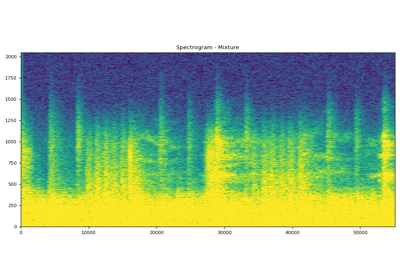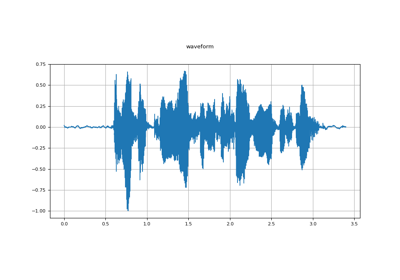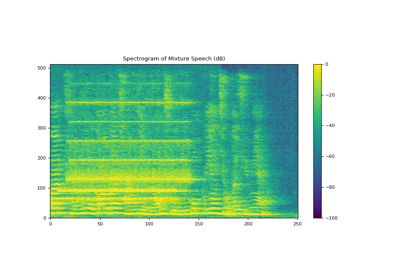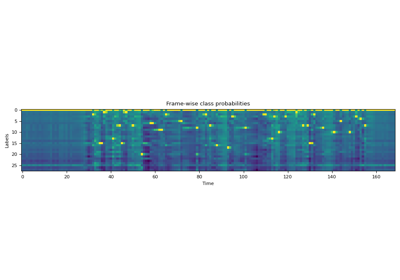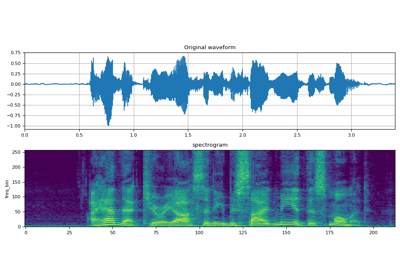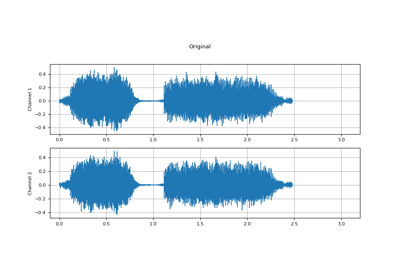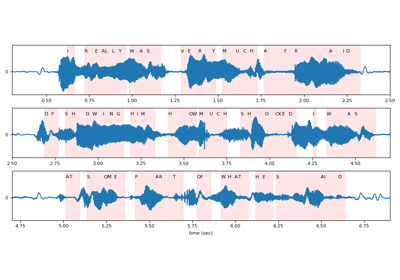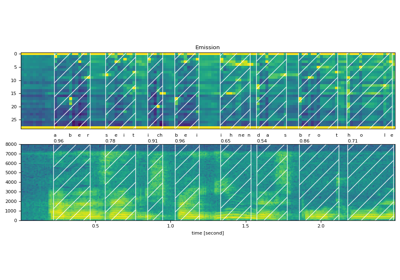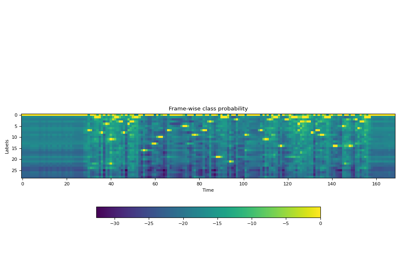torchaudio.load
- torchaudio.load(uri: Union[BinaryIO, str, PathLike], frame_offset: int = 0, num_frames: int = -1, normalize: bool = True, channels_first: bool = True, format: Optional[str] = None, buffer_size: int = 4096, backend: Optional[str] = None) Tuple[Tensor, int]
Load audio data from source.
By default (
normalize=True,channels_first=True), this function returns Tensor withfloat32dtype, and the shape of [channel, time].Note
The formats this function can handle depend on the availability of backends. Please use the following functions to fetch the supported formats.
SoundFile: Refer to the official document.
Warning
normalizeargument does not perform volume normalization. It only converts the sample type to torch.float32 from the native sample type.When the input format is WAV with integer type, such as 32-bit signed integer, 16-bit signed integer, 24-bit signed integer, and 8-bit unsigned integer, by providing
normalize=False, this function can return integer Tensor, where the samples are expressed within the whole range of the corresponding dtype, that is,int32tensor for 32-bit signed PCM,int16for 16-bit signed PCM anduint8for 8-bit unsigned PCM. Since torch does not supportint24dtype, 24-bit signed PCM are converted toint32tensors.normalizeargument has no effect on 32-bit floating-point WAV and other formats, such asflacandmp3.For these formats, this function always returns
float32Tensor with values.- Parameters:
uri (path-like object or file-like object) – Source of audio data.
frame_offset (int, optional) – Number of frames to skip before start reading data.
num_frames (int, optional) – Maximum number of frames to read.
-1reads all the remaining samples, starting fromframe_offset. This function may return the less number of frames if there is not enough frames in the given file.normalize (bool, optional) –
When
True, this function converts the native sample type tofloat32. Default:True.If input file is integer WAV, giving
Falsewill change the resulting Tensor type to integer type. This argument has no effect for formats other than integer WAV type.channels_first (bool, optional) – When True, the returned Tensor has dimension [channel, time]. Otherwise, the returned Tensor’s dimension is [time, channel].
format (str or None, optional) – If not
None, interpreted as hint that may allow backend to override the detected format. (Default:None)buffer_size (int, optional) – Size of buffer to use when processing file-like objects, in bytes. (Default:
4096)backend (str or None, optional) –
I/O backend to use. If
None, function selects backend given input and available backends. Otherwise, must be one of ["ffmpeg","sox","soundfile"], with the corresponding backend being available. (Default:None)See also
- Returns:
- Resulting Tensor and sample rate.
If the input file has integer wav format and normalization is off, then it has integer type, else
float32type. Ifchannels_first=True, it has [channel, time] else [time, channel].
- Return type:
(torch.Tensor, int)
- Tutorials using
load: 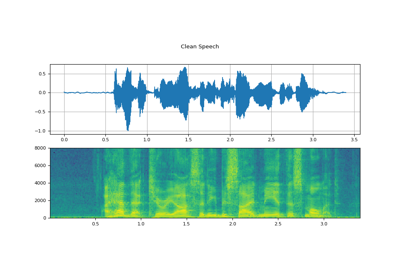
Torchaudio-Squim: Non-intrusive Speech Assessment in TorchAudio
Torchaudio-Squim: Non-intrusive Speech Assessment in TorchAudio


